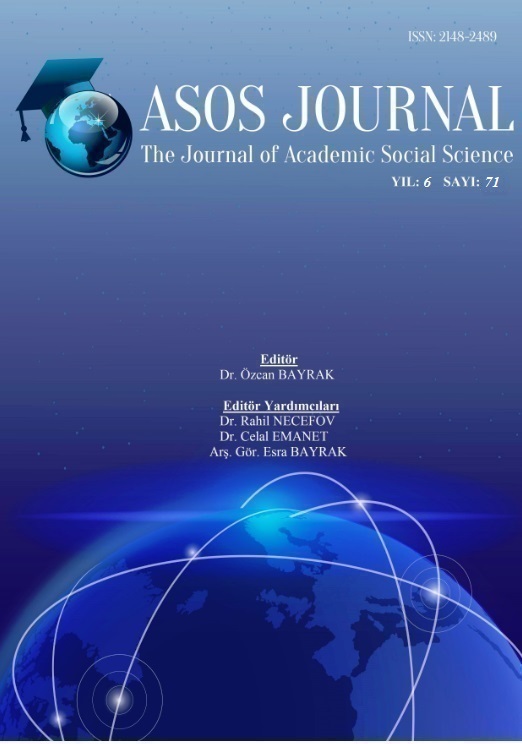Author :
Abstract
Büyük Alman yazar ve kuramcı Bertolt Brecht 1920’lerin sonlarında geleneksel Aristotelesçi tiyatrodan ve 20. yüzyılın önde gelen akımlarından kuram ve uygulamalar açısından tamamıyla farklı bir tiyatro anlayışı ile ortaya çıkar. Epik tiyatro adıyla bilinen bu türde Brecht, müziği etkin bir biçimde ve kendisinden önceki klasik sahne müziği anlayışından bambaşka usullerle kullanmıştır. Seyircinin pasif bir özdeşleşme yerine, eleştirel bir gözlemleme içinde olmasını ister. Bu amaçla yabancılaştırma yöntem ve tekniklerine başvurur. Müzik de bu yönde bir işlev üstlenir. Dekor, kostüm, ışık, koreografi, oyunculuk gibi diğer unsurlarla bir arada bir bütünün parçasını oluşturur ancak kaynaşması amaçlanmaz. Bu yazıda Epik Tiyatro’da müzik kullanımı Brecht’in sahneleme önerileri ışığında incelenmiştir.
Keywords
Abstract
The great German author and theoretician Bertolt Brecht emerged in the late 1920s with a completely different understanding of theater from the traditional Aristotelian theater and the leading trends of the 20th century in terms of theories and practices. In this new approach called epic theatre Brecht, has used music in an effective manner and in a completely different way from previous classical stage music understanding. Instead of a passive identification, Brecht wants the audience to be a critical observer. For this purpose, he refers to alienation methods and techniques and music also plays a role for this purpose. Being an important part of the structure with other elements such as décor, costume, light, choreography, acting, etc., music does not necessarily lend with those other elements. In this article, the use of music in the Epic Theater was analyzed in the light of Brecht's methods.





